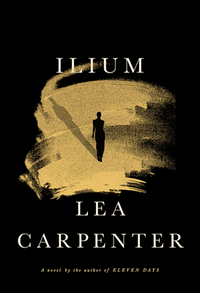Pariah by Dan Fesperman
 Wednesday, July 16, 2025 at 12:42PM
Wednesday, July 16, 2025 at 12:42PM 
Published by Knopf on July 22, 2025
Pariah is built upon the kind of plot that intrigued Hitchcock. A person with no particular connection to international intrigue becomes embroiled in a spy story that threatens his life. Dan Fesperson gives the plot a new spin by making the protagonist something of a loser who does his best spying while drunk.
Hal Knight is not exactly Al Franken, but he’s a comedian/actor who got elected to Congress before he lost his seat because of untoward behavior. While Franken was railroaded over relatively benign conduct that was far too trivial to warrant the loss of his job, Hal engaged in the kind of sexual harassment on a movie set (including the brief exposure of his reproductive organ) that gets people fired.
Hal is hiding in a small island in the Caribbean when the novel begins. He hasn’t checked social media and isn’t aware that he’s been invited by tweet to visit Bolrovia, a small nation that was once part of the Soviet Union. Its dictator, Nikolai Horvatz, is a fan of Hal’s trashy movies — the kind that depend on jiggling breasts to supplement the laughs. Hal has no desire to bring more attention to himself, but a team of CIA agents convince him that he will be serving the nation by accepting the offer and doing a bit of snooping. The CIA has few agents on the ground in Bolrovia because the head of Horvatz’s security service, Branko Sarič, has eliminated most of them.
The CIA knows that Horvatz is up to something nefarious but they aren’t sure what. Hal’s assignment is to keep his eyes open and report what he sees. The chance to serve his country might rehabilitate his image when the public learns of it and, in any event, Hal agrees because he has nothing better to do. Knowing that his phone and computer will be monitored, agents give Hal a notebook with instructions for dropping off his reports in exchange for blank replacement pages.
In Bolrovia, Pavel Lukov is assigned to mind Hal. Lukov has no great love for Horvatz and even less for his boss Sarič, so the reader might feel sorry for him when Hal evades him for enough time to drop off his reports. It seems likely that innocent Lukov will be blamed when events take a wrong turn.
Hal also meets some Americans in Bolrovia who might be involved with Horvatz’s nefarious scheme. Fesperson hides the nature of the scheme for most of the novel so I won’t reveal it. I can say that it is credible and, for a welcome change, doesn’t involve nuclear bombs.
Hal is in over his head, as he demonstrates when he drunkenly sends a message to his ex that he hopes Sarič won’t understand. As the reader might expect, Hal’s mission goes tits up after he learns about Horvatz’s secret plan. At that point, Pariah turns into an action novel as Hal (with the help of CIA agents who go rogue rather than abandoning their asset) scrambles to escape from Bolrovia. Shootouts ensue. Hal’s focus is on not getting shot but he does manage to contribute to the action.
The reader will likely hope that Hal learns something from his disgraced exit from Congress and his foolishly heroic escapades in Bolrovia. One of the novel’s best moments occurs when Hal, delivering a standup comedy performance for Horvatz, embarrasses the dictator in a way that goes over his head. By the time anyone has the nerve to tell Horvatz that he has been made the butt of a joke, Hal is eluding Sarič’s goons and running for his tragically wasted life.
The other memorable moment involves Lukov’s decision to deliver Hal to Sarič or to betray his leader and put his life at risk by helping Hal escape. A good moral dilemma is an essential ingredient of top-notch spy fiction. While Hal’s actions are driven by self-interest or intoxication, Lukov needs to decide whether he is prepared to make the sacrifices that accompany resistance to a dictator. Fesperman allows the reader to feel all the arbitrary violence that dictators depend upon to control their populations.
Making the protagonist a comedian allows Fesperman to introduce humor into the plot, but comedy is not the novel’s focus. Instead, the life-changing decisions forced upon Hal and Lukov add substance and heart to the story. Fesperman achieves a workable balance of humor and pathos without sacrificing the thrills that spy novel fans crave.
RECOMMENDED
 TChris |
TChris |  Post a Comment |
Post a Comment |  Dan Fesperman,
Dan Fesperman,  spy in
spy in  Thriller
Thriller 


